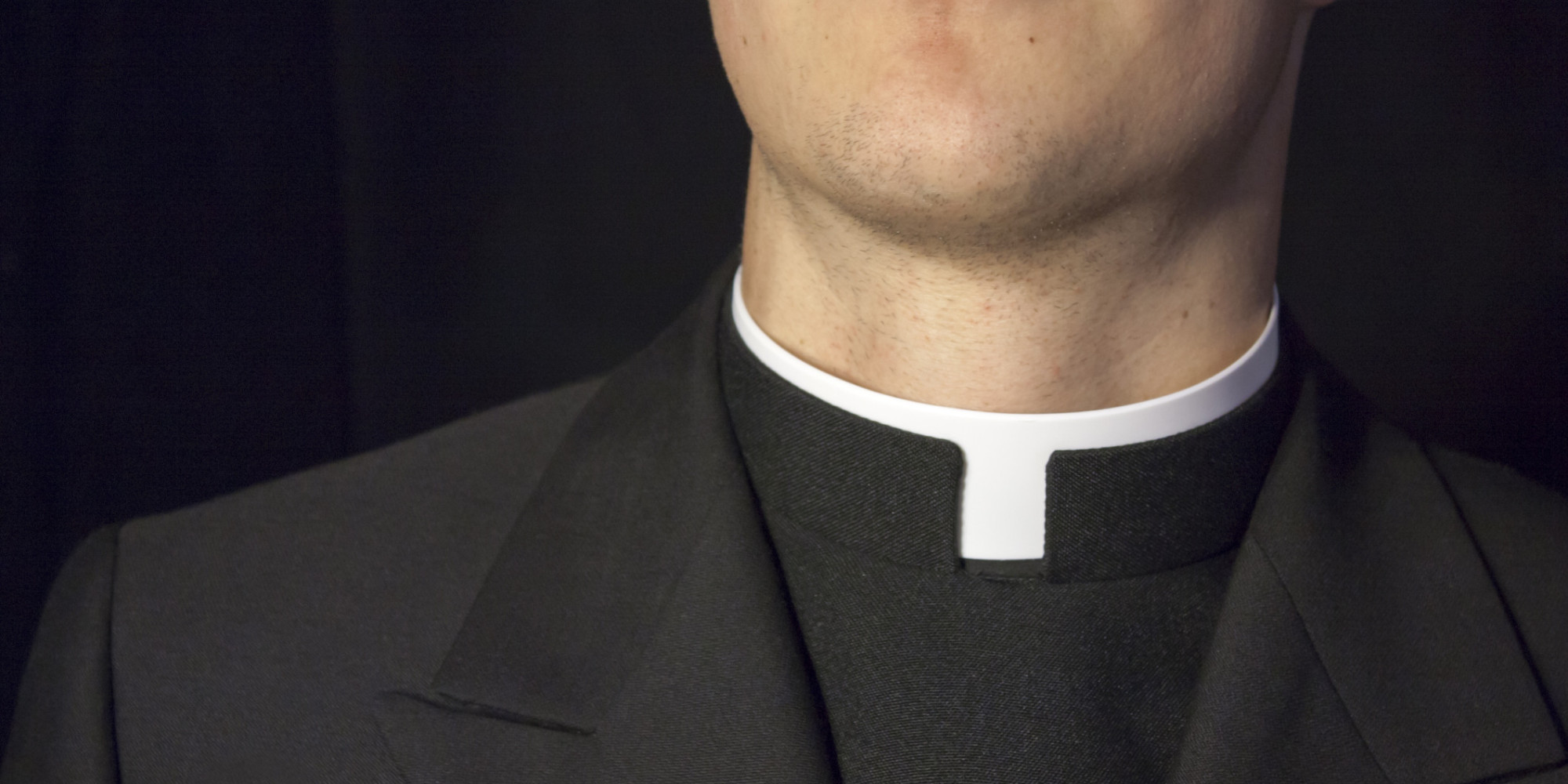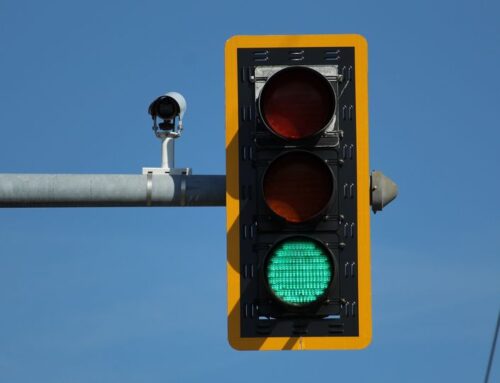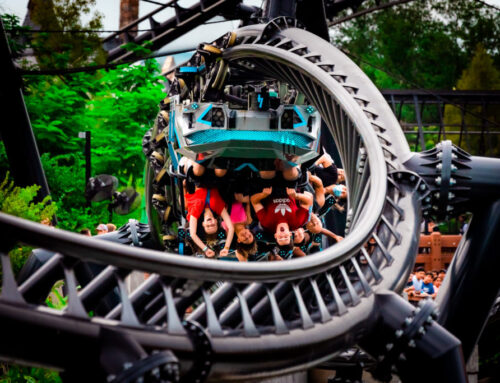“Hello, I’m Fr. Anthony.”
“Oh, hey Anthony, great to meet you!”
This sort of exchange is actually quite common when I meet non-Catholic Christians. I’ll introduce myself as “Father Anthony” — but the responding acknowledgment is sometimes quite emphatically, quite pronouncedly just… “Anthony.”
I never correct anyone who does this, even if it makes me feel a bit uncomfortable. I think it would be inappropriate to insist in that moment to be referred to as ‘Father.’ …Especially when you consider the fact that for some of our non-Catholic brothers and sisters, this is actually a very very serious issue. It strikes right at the heart of their conscience!
They don’t want to disobey the Lord! And that’s a very good thing!
After all, Jesus says pointblank in our Gospel this weekend: “Call no one on earth your father, for you have but one Father in heaven.”
…Some folks take those words of Jesus extremely literally!
I guess what I kinda want to ask as a follow-up, however is: “Then why not apply that same literalistic interpretive lens to Jesus’ words ‘This is my Body, this is my Blood?’” Or his words in John’s gospel: “For my flesh is true food, and my blood is true drink.”
But that’s a topic for another day!
At any rate… there does seem to be some amount of confusion over what Jesus is actually getting at in this apparent prohibition. Even among some Catholics, there’s sometimes the idea that if a priest wants to be called “Father,” it implies some sort of pride or egoism on his part…
So are we doing it wrong? Are we disobeying Jesus? Are priests being big-headed, rigid clericalists when we introduce ourselves as “Father?”
The answer, of course, is “No!”
Let’s look again at the gospel passage we just heard.
“As for you, do not be called ‘Rabbi.’
You have but one teacher, and you are all brothers.
Call no one on earth your father;
you have but one Father in heaven.
Do not be called ‘Master’;
you have but one master, the Christ.”
What Jesus is doing here is using a rapid-fire series of hyperbolic statements — over-the-top, dramatic, and exaggerated as they may be (kind of like when he says “Unless you hate your father and your mother, your wife, your kids, your siblings… even your own life… you cannot be my disciple”) — He’s using THAT sort of hyperbolic language to drive home a beautiful truth that ALL Christians… Catholic and non-Catholic alike can definitely agree on:
That we all belong to God.
He is the source of everything good that we have. He is, in fact, our ultimate teacher. Our ultimate master. Our ultimate father! In baptism, we are His adopted sons and daughters.
We heard this announced so beautifully this past Wednesday at All Saints Day mass, where we heard St. John tell us: “See what love the Father has bestowed on us that we may be called the children of God. Yet so we are.”
Every other teacher or father, therefore, pales in comparison. At best, they can only be a reflection of — an image of (or a participation in) the true, eternal, perfect Fatherhood of God.
As St. Paul puts it in his letter to the Ephesians: God is “the Father, from whom every family in heaven and on earth is named.” Or as our first reading from the prophet Malachi put it: “Have we not all the one father? Has not the one God created us?”
The scribes and Pharisees had evidently forgotten this truth, even if they did legitimately take “their seat on the chair of Moses” as Jesus himself affirms, going so far as to say: “Do and observe all that they tell you.”
But then Jesus warns his disciples: “But do not follow their example.”
Why?
Well, because they weren’t practicing what they preached! And they took pleasure in burdening the people who were under their rule — not bothering to help the people carry those burdens. They performed all their good works in order to be seen and appreciated by the world, not to please God alone. They heaped up honors for themselves, taking the best seats and reveling in public approval.
So, Jesus swoops in, teaching his followers an important lesson:
“As for you… don’t give in to all of that superficiality! You are called to something much deeper. You are called to find your true identity in God the Father!”
THAT’S the proper context for Jesus’ hyperbolic, figurative teaching: “Call no one on earth your father; you have but one Father in heaven.”
Jesus loves fatherhood because He loves God the Father. He greatly desires men today to embody and live out their masculine identity as “fathers,” in union with their Heavenly Father.
Here on earth, we know that there are two basic types of fatherhood that are — at their very best — intended to be a reflection of and a participation in the one single Fatherhood of God.
They are:
- Biological (or legal) fatherhood.
- Spiritual fatherhood.
Both of these types of fatherhood — biological and spiritual — are patterned off of God’s Divine Fatherhood in many ways, but today I’ll give you three — Three ways that earthly fatherhood (at its best) points to and reveals God our Heavenly Father.
- A father generates life
God the Father, from all eternity,“generates” the Son. They are co-eternal, and yet the Father is the one who “speaks” the Eternal Word.
In a family, it’s obvious that the father’s proper self-gift of himself to his wife quite literally “generates” new life. What an incredible gift! We’re very glad here at Saint Bede to have so much life being generated — so many squirming, crying babies. That’s a beautiful sign that our parish is alive! KEEP BRINGING THEM to Church. We want you here.
As for spiritual fathers, Bishops and priests also generate new life, but in a much different way. We generate spiritual children through the proclamation of the gospel — by making sure you all have access to the sacraments. As a result, people are converted and are given not only biological life — but eternal life! The salvation of their souls!
- A father forms, disciplines and instructs his children
God the Father has spent all of human history sharing Truth with us, His beloved children. He wants us to know Him, and has formed us into a “people of His very own.”
In the traditional family, fathers play a crucial role in modeling virtue, of handing on family traditions, of teaching right from wrong, of providing appropriate punishment when rules are broken, of forming kids in the Catholic faith, teaching them how to have a relationship with the Lord… how to pray!
In the Church, spiritual fathers have the grave responsibility to form and instruct their flock — to teach the Truth clearly… to hand on the authentic, unchanging Magisterium, the teachings of the Twelve Apostles as received through Divine Revelation.
In our first reading from the prophet Malachi, the Lord warned the priests of the consequences of not doing so: “You have turned aside from the way, and have caused many to falter by your instruction! I, therefore, have made you contemptible and base before all the people, since you do not keep my ways.”
- A father guards and protects.
God the Father is a strong Father who protects all that is good, true, and holy. He is a jealous God who will not be mocked. He rises up to defend the widow and the orphan… the oppressed and the weak.
The father of a family is supposed to image this by protecting his loved ones from harmful materials, from unholy influences… He sets boundaries and defends his own heart and the heart of his bride. He engages in spiritual warfare on behalf of his family, strives for excellence in virtue, and humbly repents of his sins when he himself fails.
A spiritual father, too, is meant to protect the flock at the cost of his own life. He guards them from incorrect doctrines, from subtle lies. He offers penance and intercession — he is crucified with Christ — in order to deliver his spiritual children from danger and harm.
Fellow men, my brothers: Our greatest enemy, Satan, hates God the Father, and so he obviously and necessarily hates the fatherhood God wants to create in us through Jesus Christ. Our deepest identity is under attack. The Devil wants us to be wishy-washy, lazy, self-indulgent, and most paralyzing of all — afraid.
The Church desperately needs REAL fathers right now: Both in the pews as husbands and dads… and in the presider chair as priests.
This week, the Church celebrates National Vocations Week. We shouldn’t equate “holy vocations” simply with vocations to the priesthood. We also need valid, sacramental, sacrificial, open-to-life vocations to Holy Matrimony in the Church. This is the natural Christian vocation, and the vast majority of people are called to holy marriages.
But regardless of whether you’re called to be a priest, a husband, or a monk — each of these vocations are different ways of becoming a father — of becoming more and more like our Heavenly Father.
And ladies… don’t worry, I’m not forgetting you. This homily has been absolutely for you too! Because here’s the deal — You deserve authentic fatherhood. You deserve true masculinity. If there are no authentic, masculine fathers in this world, then it follows that there will be no mothers either.
There is a kind of necessary complementarity that brings about fruitfulness and goodness — wholeness and holiness. Mothers living their identity out faithfully encourages and empowers fathers to live up to their identity, and vice versa.
Maybe you noticed, but in our readings this weekend, we also got some beautiful references to motherhood. Psalm 131 says: “As a child has rest in its mothers arms, even so my soul.” And again, St. Paul in his letter to the Thessalonians says: “We were gentle among you, as a nursing mother cares for her children.”
We need both.
Men and women… fathers and mothers… are not in competition as the world wants us to believe, and they are not interchangeable. We’re different for a reason, and that’s a beautiful gift. It’s a beautiful challenge.
And at this particular moment in history — I believe that we need all fathers — biological and spiritual — to step up and take responsibility. We need to own up to our failures and respond to God’s call… To generate new life. To form and instruct. To guard and protect.
Our Father who art in Heaven desires us to have a Heart like His.
Jesus, help us.
Come Holy Spirit:
Make us more like the Father.





Amen! So true and soooooooo good! We have a good good Father in Heaven for sure! Thank you Fr. Anthony for such a powerful teaching on both spiritual and biological fatherhood. I appreciate it very much!